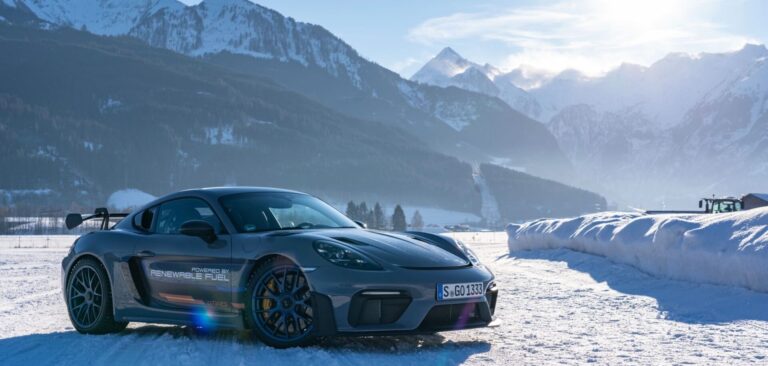With the EU’s plans for a ban on all ICE passenger vehicles from 2035 thrown into doubt by recent opposition from Germany, among other member states, the German Federal Government has now reached an agreement with the EU Commission on the inclusion of carbon-neutral e-fuels post-2035.
According to the German Minister for Transport, Volker Wissing, a member of the pro-business Free Democratic Party, “In very detailed and constructive negotiations, we managed to ensure the element of technology neutrality within the framework of the regulation of fleet limits. This paves the way for vehicles with combustion engines that only use CO2-neutral fuels to be newly registered after 2035.
“Concrete procedural steps and a concrete schedule were fixed in a binding manner. In a first step, an e-fuels-only vehicle category is to be created and then integrated into the fleet limit regulation. We want the process to be completed by autumn 2024.”
What this means in practice is that the EU legislation banning engines that burn fossil fuels should now be passed into law, but with a separate category covering the use of ICEs running on carbon-neutral e-fuels. The practical implications of ensuring ICE vehicles registered after 2035 will only be able to run on e-fuels will no doubt be the source of much discussion and head-scratching.
Ralf Diemer, managing director of the eFuel Alliance, a group representing over 170 companies involved in the e-fuel supply chain, welcomed the compromise. “By consistently and persistently sticking to technology openness, the FDP has opened a door that should make climate-friendly e-fuels for passenger cars and light commercial vehicles possible in the long term,” he said. “Above all, this helps climate action and we are pleased about that. The fact that Italy, Poland and other member states have supported the Federal Government in Brussels also shows that unilateral technology bans are viewed critically not only in Germany but also in other parts.”
The original EU legislation would have banned any manufacturer of over 1,000 vehicles per year (to be sold in the European market) from selling ICE vehicles, ruling out not only the large players but also the likes of Ferrari and Lamborghini. However, the acceptance in principle of e-fuels paves the way for companies such as these to retain ICE offerings. Ferrari CEO Benedetto Vigna noted that the compromise was good news for his company, opening the door for continued ICE sales on top of its planned future electric vehicles.


